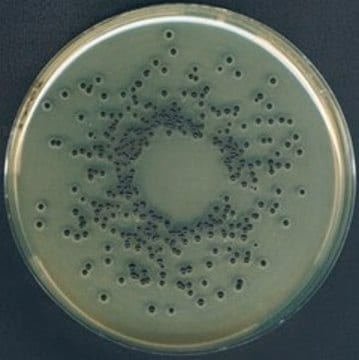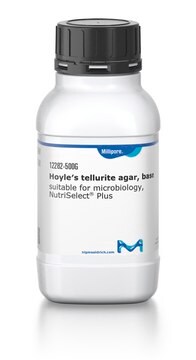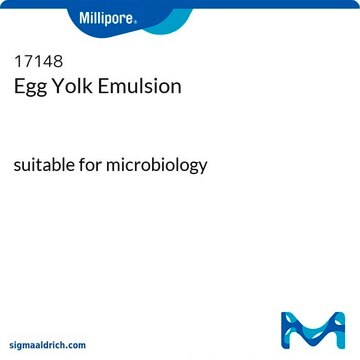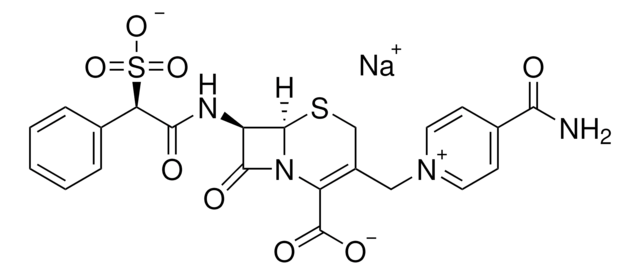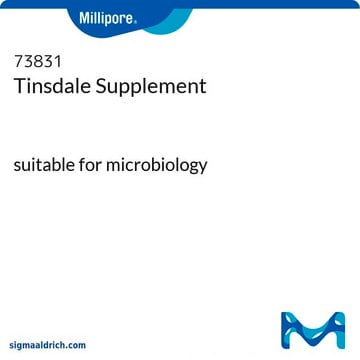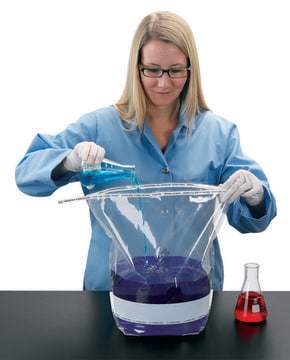17774
Potassium tellurite solution
1% in H2O, suitable for microbiology
About This Item
Recommended Products
Agency
according to ISO 6888-1:2020
Quality Level
sterility
sterile (Filtered and Aseptic Handled)
form
liquid
shelf life
limited shelf life, expiry date on the label
concentration
1% in H2O
application(s)
environmental
food and beverages
microbiology
storage temp.
2-8°C
suitability
Corynebacterium spp.
Staphylococcus spp.
SMILES string
[K+].[K+].[O-][Te]([O-])=O
InChI
1S/2K.H2O3Te/c;;1-4(2)3/h;;(H2,1,2,3)/q2*+1;/p-2
InChI key
BFPJYWDBBLZXOM-UHFFFAOYSA-L
Looking for similar products? Visit Product Comparison Guide
Application
Other Notes
Storage Class Code
10 - Combustible liquids
WGK
WGK 2
Flash Point(F)
Not applicable
Flash Point(C)
Not applicable
Personal Protective Equipment
Choose from one of the most recent versions:
Already Own This Product?
Find documentation for the products that you have recently purchased in the Document Library.
Customers Also Viewed
Articles
Chromogenic media enable the selective detection of S. aureus, which produce bluish-green colonies that are clearly differentiated from other species.
Chromogenic media enable the selective detection of S. aureus, which produce bluish-green colonies that are clearly differentiated from other species.
Chromogenic media enable the selective detection of S. aureus, which produce bluish-green colonies that are clearly differentiated from other species.
Chromogenic media enable the selective detection of S. aureus, which produce bluish-green colonies that are clearly differentiated from other species.
Our team of scientists has experience in all areas of research including Life Science, Material Science, Chemical Synthesis, Chromatography, Analytical and many others.
Contact Technical Service

